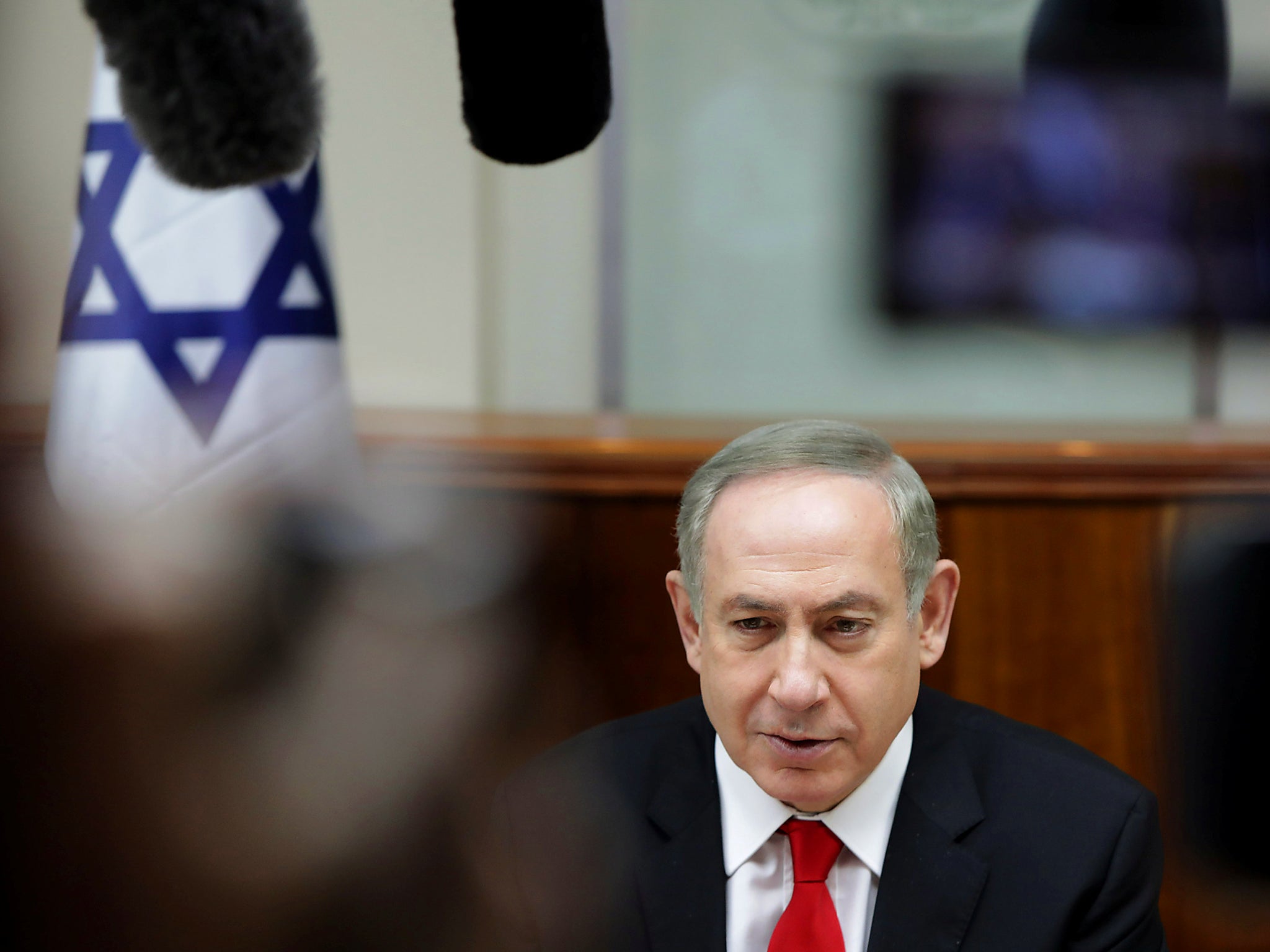US won't insist on two-state solution to Israel-Palestine conflict, White House official says
During the presidential campaign, Donald Trump regularly voiced pro-Israeli sentiments

The United States will not insist on a two-state solution to the Israel-Palestine conflict in the Middle East, a White House official has said.
Speaking a day before Donald Trump holds a meeting with Israeli Prime Minister Benjamin Netanyahu, the official said a number of options were on the table.
"Whether that comes in the form of a two-state solution if that's what the parties want, or something else," the official said, on condition of anonymity.
During the presidential campaign, Mr Trump regularly voiced pro-Israeli sentiments, including a promise to move the US embassy from Tel Aviv to Jerusalem.
Mr Netanyahu is meeting with Secretary of State Rex Tillerson on Tuesday before he meets Mr Trump in the Oval Office on Wednesday. While former Secretary of State John Kerry condemned Israel's plan to expand settlements, Mr Tillerson was unlikely to take the same path.
He will also meet House Speaker Paul Ryan, Senate Majority Leader Mitch McConnell and Senate Minority Leader Chuck Schumer.

An aide to the Israeli Prime Minister said the aim of the talks was to forge ever closer links between the two right-wing leaders, a few weeks after they held a telephone call.
"There isn't going to be any daylight, no gaps," the adviser said.
Other subjects of discussion between the two leaders will include Iran and expanded Israeli settlements.
The President caused controversy when he suggested in late January that the US embassy might move to Jerusalem, marking a big change from conventional US foreign policy.
His frequent statements about the embassy in Jersusalem, a city claimed by both Jews and Palestinians as their capital, come despite warnings that it would violate international law and destroy the peace process.

Former President Barack Obama also said the status quo between Israel and Palestine was "unsustainable" but also warned that the moment for a two-state solution was "passing".
Israel annexed east Jerusalem in the 1967 Six Day War, a move that is not recognised by the international community.
Newly-appointed US ambassador to Israel, David Friedman, is a supporter of Israeli settlements.
Mr Trump once pointed to his Jewish son-in-law, Jared Kushner, as the man to broker a peace agreement.
Despite apparent shared views between the US and Israeli leaders, Mr Netanyahu might be concerned that Steve Bannon, the US chief strategist, could provoke Iran via his "war on Islam" which would further unhinge relations in the Middle East.
The US recently declared that Iran was "on notice" after it carried out a nuclear missile test. The man who announced the move, former national security adviser Michael Flynn, was forced to resign this week after failing to admit he had phoned the Russian ambassador to reassure them that sanctions would be overturned.
The meeting of Mr Trump and Mr Netanyahu also comes shortly after the President issued a statement on International Holocaust Remembrance Day which failed to mention the Jewish people, six million of whom were murdered by the Nazis. The Anti-Defamation League said the omission was "troubling".
Vice President Mike Pence tweeted about the Holocaust shortly after the statement was released, which did mention the Jewish people.
Bookmark popover
Removed from bookmarks